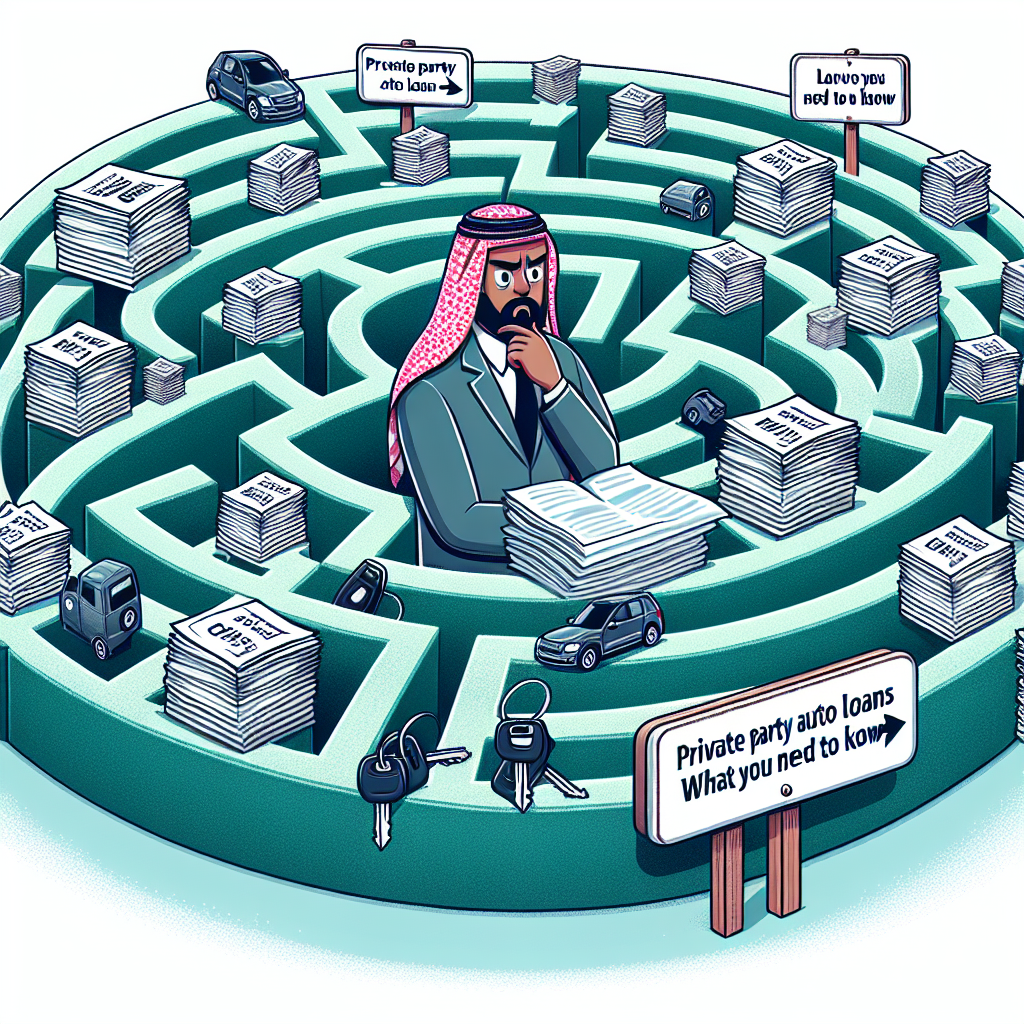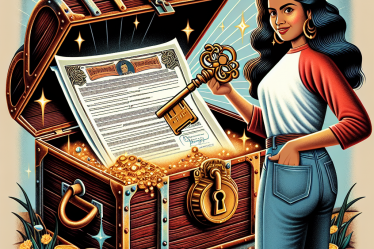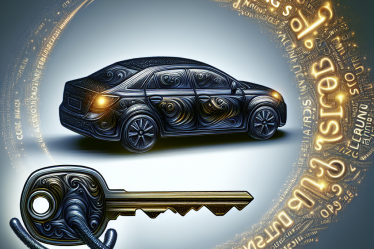
Quick Snapshot
- A private party auto loan helps you finance a car bought directly from an individual, bypassing dealerships.
- Though rarer and often carrying steeper interest, these loans can be budget-friendly since private sellers usually price vehicles lower than dealerships.
- If a private party loan doesn’t fit your scenario, personal loans, dealer financing, or paying cash are viable alternatives.
Stumbling upon the car of your dreams off the dealership lot but lacking cash? Opting for a private party loan might just be your smartest move, primarily because of its adaptability. Instead of being shoehorned into dealership offers, you unlock the chance to negotiate directly with a private owner and snag a ride within your price range.
Qualifying for private party loans can be less of a headache than with traditional lenders. That said, lenders often jack up the rates due to the heightened risk of dealing with individual sellers rather than dealerships. Still, armed with persistence, you can track down lenders with terms that won’t break the bank.
Defining a Private Party Auto Loan
Financing a vehicle sold by an individual—rather than a dealership—is what a private party auto loan boils down to. Such private sales often mean a friendlier price tag on the automobile itself. But given the increased risk lenders take, these loans aren’t as widespread and generally carry heftier interest rates. A key distinction: you’ll typically need to submit detailed info about the car when applying.
“Private party auto loans widen the playing field for buyers aiming for specific vehicles,” notes Strati Papageorge, senior VP of auto product management at PNC Bank. “While rates vary with credit scores, car prices, and loan length, buyers can nonetheless pocket savings by negotiating directly with sellers. With the right deal, borrowers get competitive financing along with manageable monthly dues and broader vehicle choices.”
Mitigating private party loan drawbacks is possible: start by checking out local credit unions and banks, then branch out to online lenders. Comparing terms beforehand — or after you pinpoint a vehicle — will arm you with clarity about what to expect.
Tracking Down Private Party Auto Loans
Community banks, local credit unions, and various online lenders are prime sources for private party auto loans. As with any used car financing, your desired vehicle must tick several boxes: often being under 10 years old and clocking fewer than 100,000 miles.
Some lenders set minimum loan amounts, so if your target car costs $6,000 but the lender won’t budge below $8,000, you’ll need to shop around. Always scrutinize lender criteria before applying to avoid needless credit dings from ineligible applications.
By the numbers: According to recent data, about 15% of used car buyers rely on private party loans. Interest rates average 1-3% higher than dealership loans due to increased risk factors. Vehicles financed through these loans typically have an age of 7-8 years with mileage below 90,000 miles.
Spotlight on Popular Lenders
myAutoLoan
Rating: 3.7/5
Operating as an online loan marketplace rather than a direct lender, myAutoLoan connects borrowers to lenders offering private party loans starting around $8,000. Noteworthy for flexible approval criteria and speedy funding turnaround.
- Pros: Easy qualification standards, rapid funding, transparent rates.
- Cons: Availability limited by state, vehicle restrictions apply, relatively high minimum loan threshold.
Regions Bank
Rating: 3.7/5
This institution provides private party loans ranging from $5,000 up to $125,000. Coverage can go beyond the vehicle’s value (up to 110%), with a competitive APR and an autopay discount—an edge over many online competitors.
- Pros: High maximum loan amounts, autopay discounts, clear rates.
- Cons: Not accessible in every state, restrictions on used vehicle purchases, lacks prequalification.
M&T Bank
Rating: 3.9/5
With its base in Buffalo, M&T Bank is a solid pick for buyers aiming at less pricey rides. Their private party loans start as low as $2,000, backed by 24/7 customer support and rates capped below 16%.
- Pros: Low minimum loans, rate transparency, discounts for existing customers.
- Cons: Limited state availability, no preapproval, longer terms required for best rates.
PNC Bank
Rating: 3.8/5
Borrow up to $100,000 and possibly fund your loan within 24 hours. With an extensive branch network, PNC is perfect for those who value face-to-face guidance. Be mindful, though, of high minimum loan limits and steep maximum APRs, which could inflate your payments.
- Pros: Low entry APR, discounts with autopay, rapid loan decisions.
- Cons: High loan minimums, in-branch visits needed for private purchase loans, unclear eligibility details.
Steps to Secure a Private Party Auto Loan
1. Budget Planning
Kick off by reviewing your credit profile, calculating your upfront payment capabilities, and deciding how much you’ll need to borrow.
2. Lender Shopping
With the car in mind, hunt for lenders offering private party loans. Size up interest rates, loan lengths, monthly installments, and fees. Since these loans tend to be pricier, seek preapproval first—it sets a spending cap and forecasts monthly dues.
3. Vehicle Selection
Consult trusted guides like Edmunds and Kelley Blue Book for ownership cost estimates and reliability insights. If buying out-of-state, weigh the hassle of travel and title transfers against potential savings. Always double-check your state’s title transfer rules on the DMV website before sealing the deal.
4. Loan Application
Once you’ve zeroed in on a private seller, prepare to share your:
- Full name, DOB, address, Social Security number, and contact info
- Employment and income details
- Existing debts, including mortgages
Additionally, have these vehicle documents ready:
- Make, model, year, and mileage
- VIN (Vehicle Identification Number)
- Bill of sale outlining the purchase
- Vehicle registration and title copies
- Payoff statement from seller’s lender, if applicable
5. Closing the Deal
If approval slips through your fingers or no private party loan matches your target car, don’t fret—personal loans, paying cash, or dealer financing remain solid fallbacks.
Your lender will furnish a repayment schedule and a detailed breakdown showing how much of each payment tackles interest versus principal. Setting up autopay is a savvy move to dodge late fees and extra hassles—just verify payments hit their mark monthly.
Viable Alternatives to Private Party Auto Loans
Personal Loans
Unsecured personal loans stand as a prime alternative, assessing your income and creditworthiness rather than the car’s specifications. This path suits situations such as:
- Private party loans with too high minimums
- Older or high-mileage vehicles
- Cars carrying salvage titles
Keep in mind, personal loans usually come with heftier interest rates compared to private party auto loans.
Paying Cash
If patience isn’t a problem, amassing savings to cover the purchase outright shrinks your overall spending. Especially when eyeing older, affordable rides ineligible for traditional loans, steering clear of financing minimizes your risk.
Dealer Loans
Turn to dealership financing if private party options fall through. Dealer loans might involve pricier vehicles but streamline the loan process significantly. You might also snag financing from lenders who previously declined your private party application.
Ultimately, private party auto loans offer a relatively smooth path to owning a vehicle without the dealership markup. Though rarer and sometimes pricier, hunting for competitive financing paired with lower purchase prices can lead to noticeable savings.

